The much-anticipated 2020 UEFA European Football Championship will, for the first time in its 60-year history, be hosted by 11 venues across Europe, from Scotland to Azerbaijan, from Budapest to Bucharest. It will also include unprecedented 26-men squads and a staggering 24 teams.
Staged every four years, it's the most prestigious football competition after FIFA's World Cup.
With COVID-19 restrictions gradually being eased and travel bans lifted across Europe, stadium capacity will also increase to a minimum of 25 per cent for the first time since the pandemic.
Greece, however, won’t be among the teams.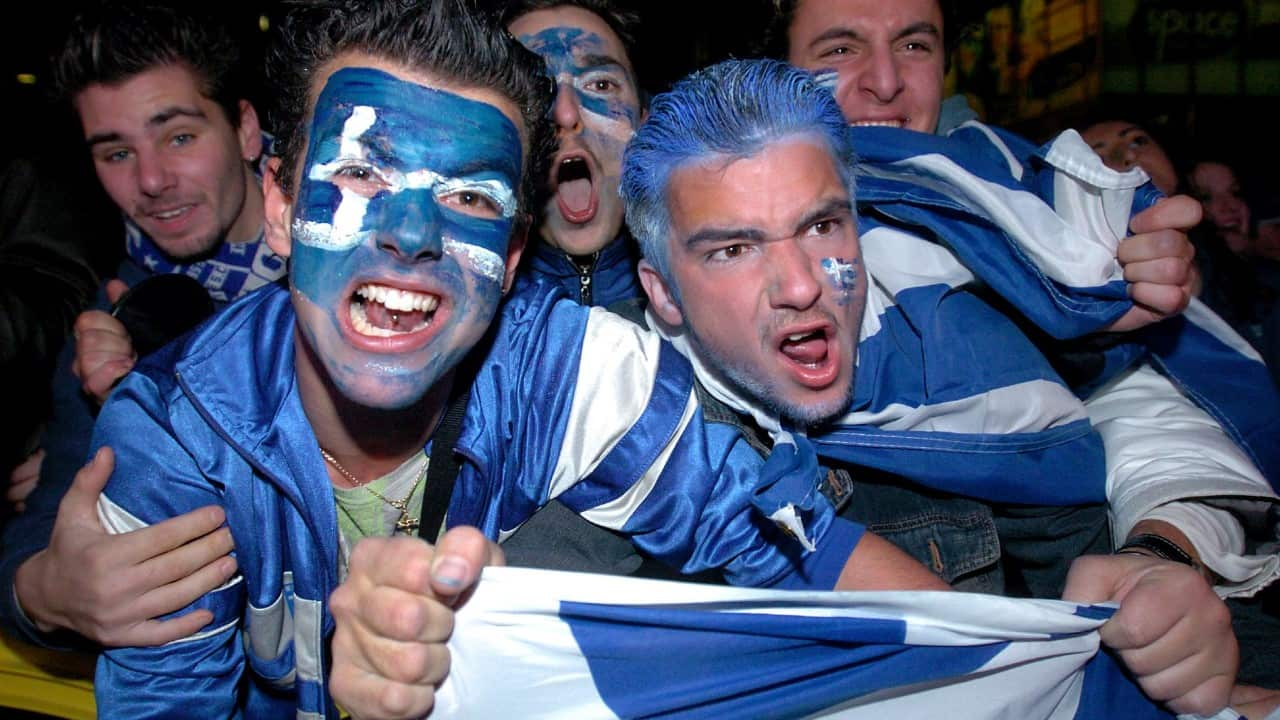 The nation that shocked the world by lifting the trophy in 2004, in fact, didn’t qualify for the final stage of the 2020 event.
The nation that shocked the world by lifting the trophy in 2004, in fact, didn’t qualify for the final stage of the 2020 event.

July 5, 2004. Greek-Australian soccer fans celebrate the victory at Euro 2004 in Melbourne's Lonsdale Street Source: AAP Image/Julian Smith
Then, 17 years ago, as Greece eliminated Spain, France and Portugal on the way to one of the most remarkable accomplishments against all odds in football history, Greek fans literally took to the streets, turning Melbourne into Athens.
"40,000 people celebrated partying on Lonsdale Street, while 10,000 fans gathered in Sydney’s Enmore Theatre and at the Orthodox Community in Lakemba, before moving onto Brighton-Le Sands," recalls Themi Kallos, SBS Greek's Executive Producer.
Even former New South Wales Premier Bob Carr, not quite a football fanatic, jumped on the bandwagon and joined the celebrations, which are still remembered as one of the most iconic displays of Greek-Australian identity ever.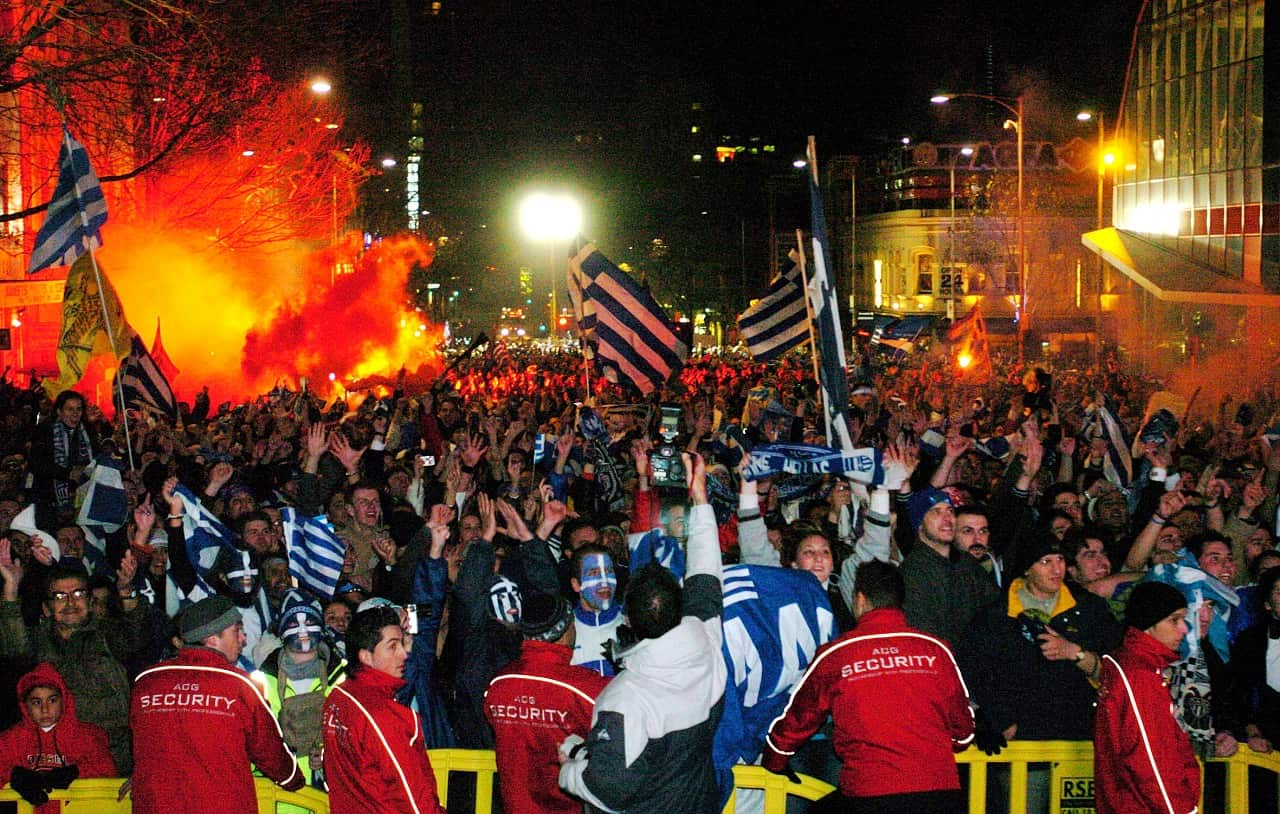 Serbia won't be there either.
Serbia won't be there either.

Greek-Australian soccer fans celebrate victory in Euro 2004 in Lonsdale Street in Melbourne, July 5th 2004. Source: AAP
Without the contribution of their active and proud sports fanbase in Australia (Novak Djokovic, does it ring a bell?) the chances of Euro 2020 to heat up a football fever down under certainly decrease if not vanish, as the tournament (which kept its original name although played a year later) falls amid a surge in coronavirus cases that cast a shadow on public activities across Australia.
It goes without saying that the growing anticipation in the Old Continent, fuelled by pleasant weather and the sense of new normality, is only partially shared by the multicultural communities down under.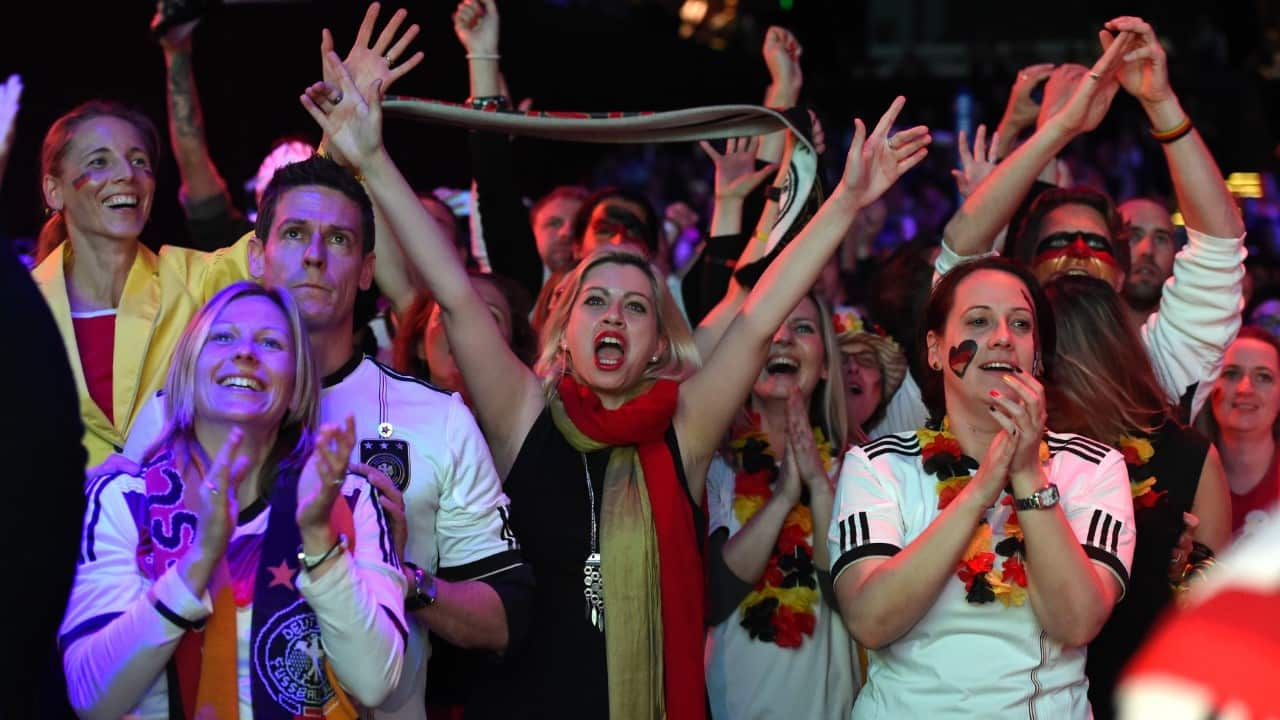 As Melbourne residents won't be able to gather due to the COVID restrictions, the Euro 2020 curtain-raiser between Italy and Turkey on 11 June at the Stadio Olimpico is likely to spark at the very best a series of Let's Skype with the nonni messages across the Victorian capital.
As Melbourne residents won't be able to gather due to the COVID restrictions, the Euro 2020 curtain-raiser between Italy and Turkey on 11 June at the Stadio Olimpico is likely to spark at the very best a series of Let's Skype with the nonni messages across the Victorian capital.

July 14, 2014. Germany supporters celebrate as they watch the World Cup Final between Germany and Argentina, on big screens, in Sydney Source: AAP Image/Dan Himbrechts
Melbourne's Lygon Street has been traditionally the home to a jubilant mixed crowd of Australian-Italians all the way back to the 1982 victory at the FIFA World Cup.
Even in 2006, despite the infamous Fabio Grosso incident, Italians and Australians got together for what was the last big hurrah for the Azzurri.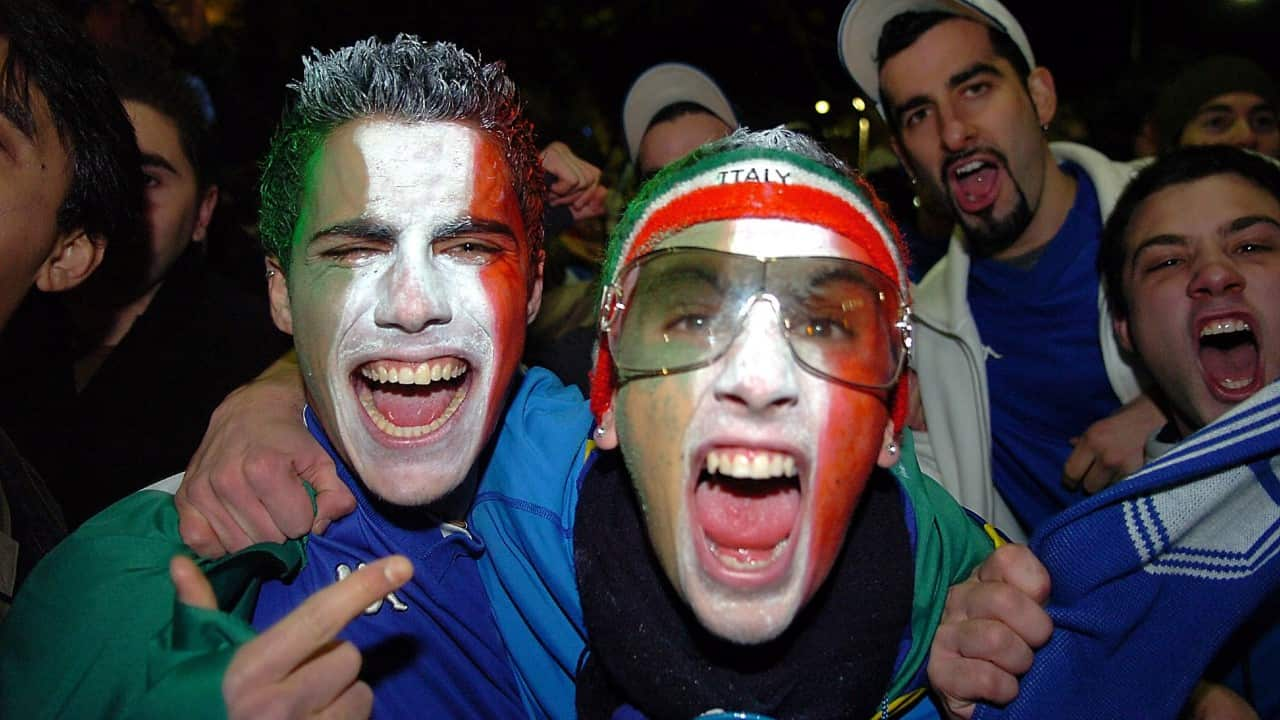 As Melbournians are waiting for the restrictions to ease, caught between the Calcio (football) and the COVID, the spotlight will shift to Sydney Casino's Sports bar, where the most recent wave of Italian migrants will gather to share a long-forgotten experience.
As Melbournians are waiting for the restrictions to ease, caught between the Calcio (football) and the COVID, the spotlight will shift to Sydney Casino's Sports bar, where the most recent wave of Italian migrants will gather to share a long-forgotten experience.

Italian soccer fans celebrate on Lygon Street in Melbourne after Italy beat Australia 1-0 in their 2006 World Cup match, after watching the game on a big screen Source: AAP Image/Joe Castro
"We'll be ready with hot tea and cold beer," says one of the organisers, Claudio Scamporlino.
"Everyone will bring over friends and passion. We'll turn Sydney's Star blue, and somehow the team back in Italy will feel our support".
The Italians failed to qualify for the 2018 World Cup, but the Azzurri are unbeaten in 27 games. A record-breaking run in their modern era which gave their fans down under a good enough reason to wake up in the middle of the night, hoping that the 15-year drought could finally come to an end.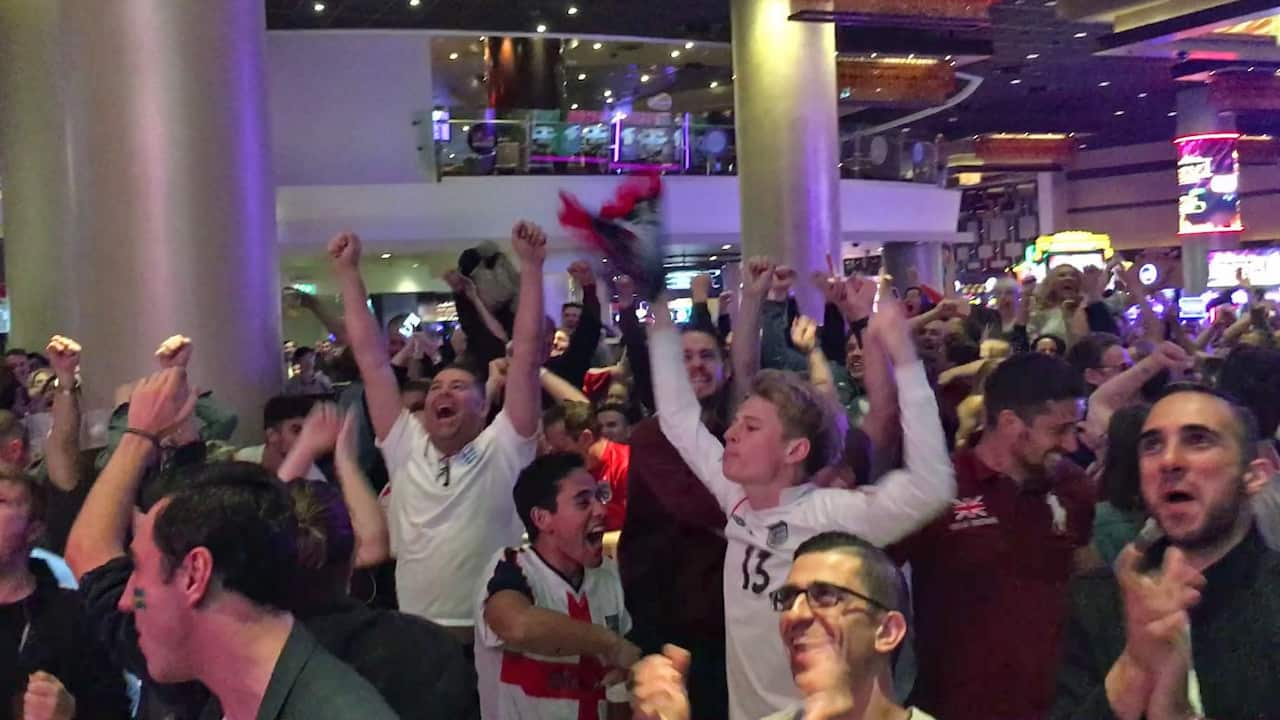 On the other hand, Turkey's fans left their sign as they sprinkled colours in Australia’s major cities to celebrate their unexpected podium finishes at the 2002 World Cup and at the 2008 Euro.
On the other hand, Turkey's fans left their sign as they sprinkled colours in Australia’s major cities to celebrate their unexpected podium finishes at the 2002 World Cup and at the 2008 Euro.

Fans react to England's goal while watching coverage of the FIFA World Cup 2018 quarter-final match against Sweden at the Star Casino in Sydney Source: AAP Image/Ryan Wilkinson/PA Wire
Nowadays, the team is ranked 29th in the world, and Turkish-Australians seem little optimistic about their chances to fill Sydney Road in Melbourne’s Brunswick East and Sydney’s Auburn with their overjoyed chants.
"I don’t foresee anything to celebrate," says SBS Turkish Executive Producer Nejat Basar.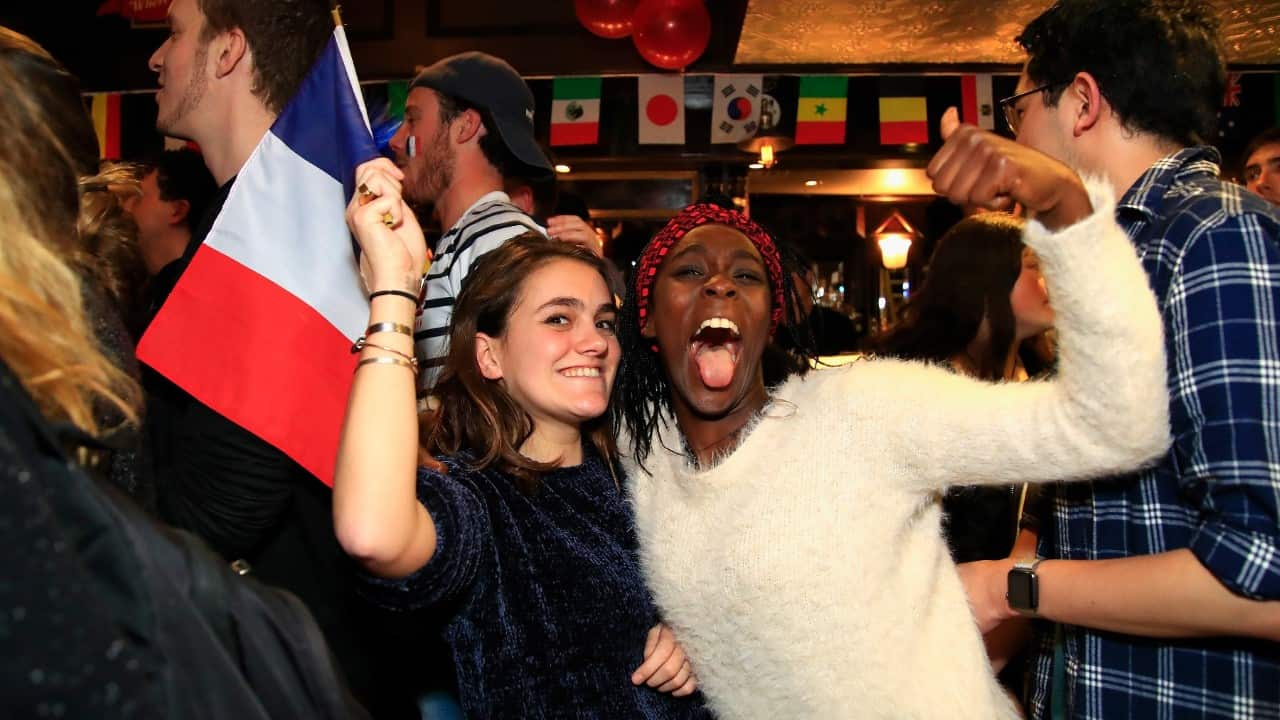 More buoyant about their chances are, ça va sans dire, the French.
More buoyant about their chances are, ça va sans dire, the French.

French fans celebrate during celebrations for the FIFA World Cup Final between France and Croatia at Cheers Bar in Sydney, Source: AAP Image/Jeremy Ng
After a disappointing runner up finish at Euro 2016, played on home soil, France won the 2018 World Cup.
This time around, despite being challenged in the so-called Group of Death along with Germany, Portugal and Hungary, the Blues look very well equipped to hit back to back targets - both Word Cup and Euro - as they did in 1998-2000.
Three years ago, the French-Australian community celebrated all night long with a party at Melbourne’s Alliance Française.
"It was so much fun. Such a great memory!" Leïla Lebreton told SBS French.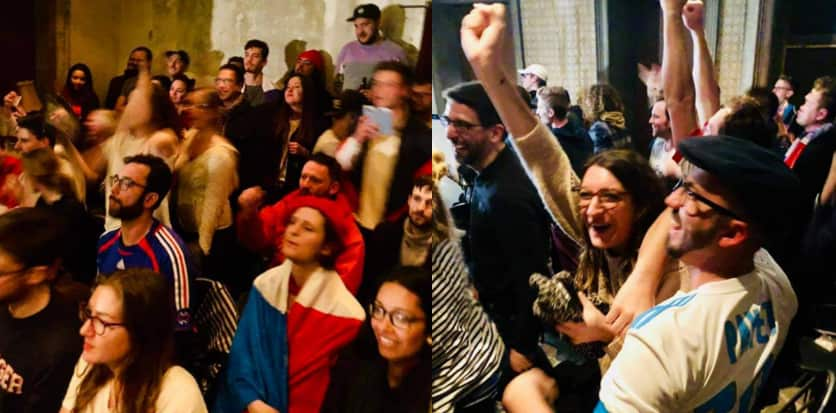 The odds speak well for England, although they haven't won a major international tournament in 55 years, and give credits to Belgium, Spain, Italy and Germany. Closely followed by Portugal and The Netherlands, who could also have their say in the competition.
The odds speak well for England, although they haven't won a major international tournament in 55 years, and give credits to Belgium, Spain, Italy and Germany. Closely followed by Portugal and The Netherlands, who could also have their say in the competition.

French football fans in Australia celebrating the 2018 World Cup victory at the Melbourne's Alliance Française Source: courtesy of Leïla Lebreton
"The Sydney-based Orange Legion - Het Oranje Legioen - is looking into options to hire a venue, so they can watch The Netherlands together with other Dutchies. But only if the national team reaches the quarter-finals" explain SBS Dutch's Producer Paulien Roessink.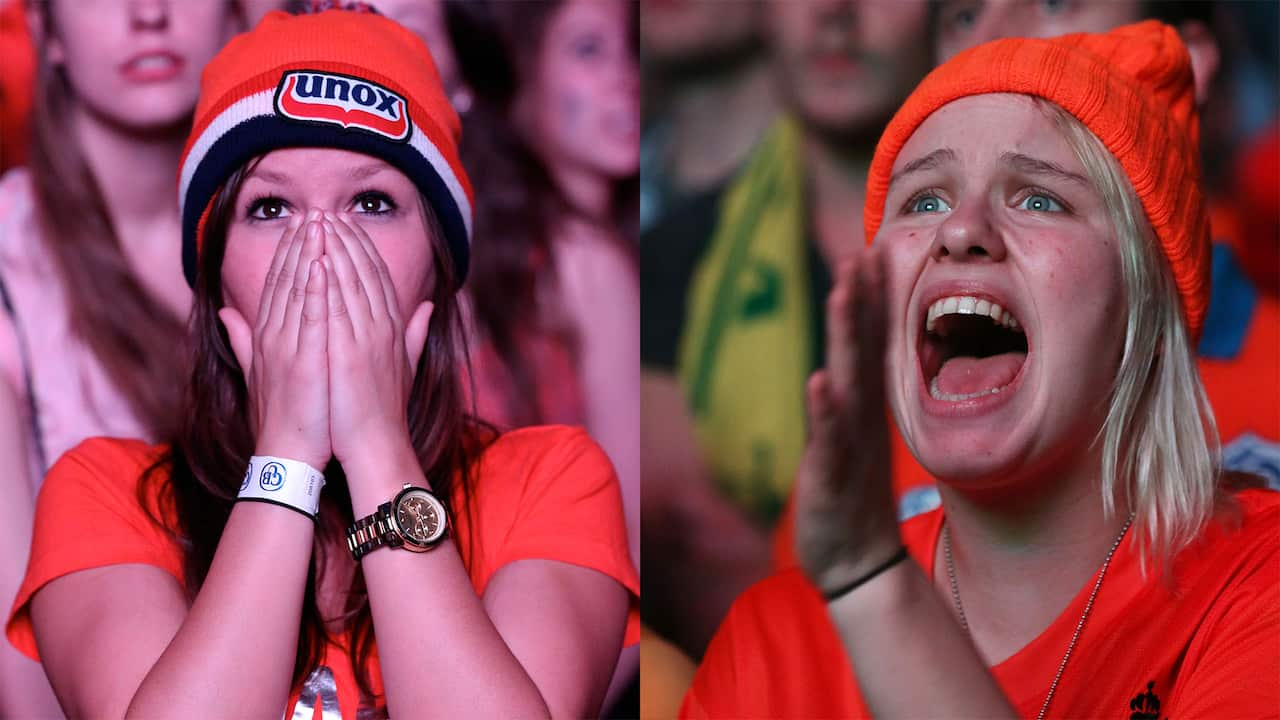 Spain is the only national team with three consecutive major titles, becoming the first European Nation to win a FIFA World Cup outside of Europe in 2010, as well as the only to win back-to-back European Championships in 2008 and 2012.
Spain is the only national team with three consecutive major titles, becoming the first European Nation to win a FIFA World Cup outside of Europe in 2010, as well as the only to win back-to-back European Championships in 2008 and 2012.

Dutch and Australian soccer fans gather at Sydney's Home Bar to watch the 2014 World Cup match between Australia and the Netherlands in Brazil Source: AAP Image/Jane Dempster
Despite some slightly disappointing results in the most recent international showdown, The Red Fury's fan base down under hasn't given up. La Peña Madridista, the Australian-based group of Real Madrid supporters (nicknamed The White Sharks in Melbourne and The White Kangaroos in Sydney), is looking to put together Spanish supporters.
Some of them became famous in 2010 when they celebrated the World Cup triumph by jumping in Adelaide's Victory Park fountain in chilly seven-degree conditions.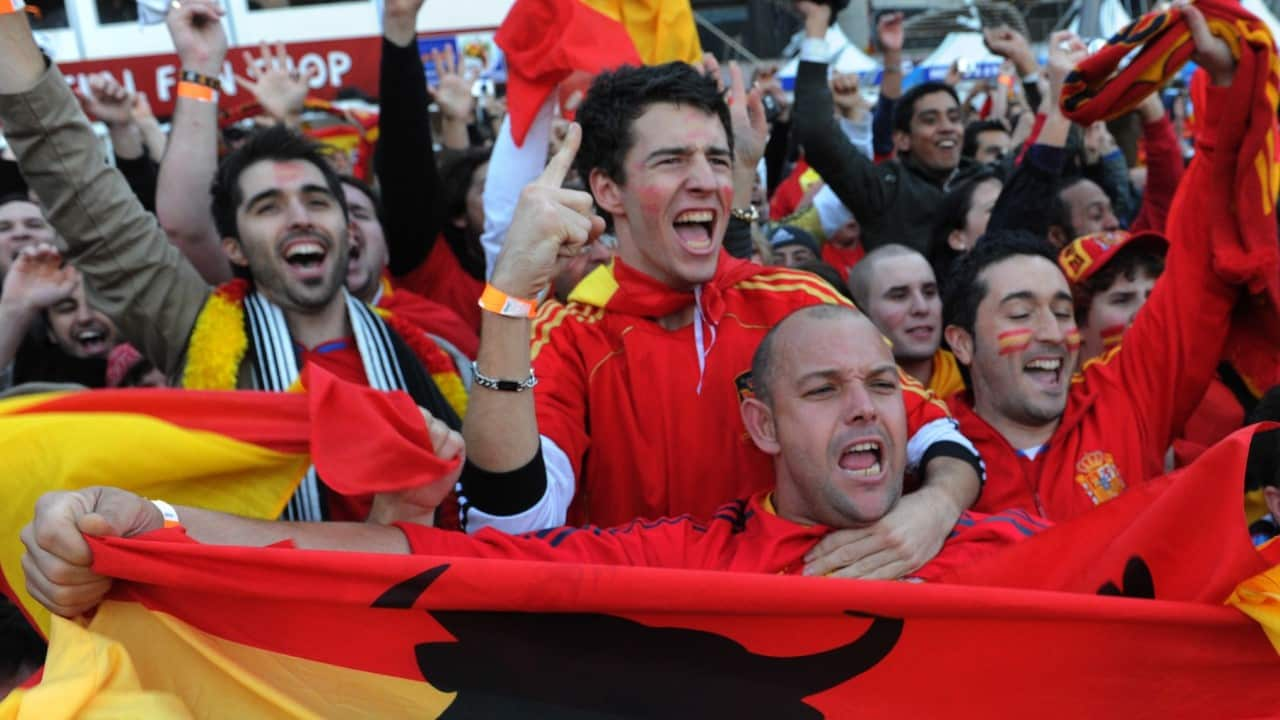 In the past, Euro championships proved to be the ground for shocking surprise. Before Greece's remarkable deed in 2004, Denmark was able to score a similar feat when they went to win the title in 1992. A tournament they weren't even meant to play in.
In the past, Euro championships proved to be the ground for shocking surprise. Before Greece's remarkable deed in 2004, Denmark was able to score a similar feat when they went to win the title in 1992. A tournament they weren't even meant to play in.

July 12, 2010. Spanish fans celebrate Spain's win in the World Cup at the FIFA Fanfest live venue at Darling Harbour, Sydney Source: AAP Image/Dean Lewins
Despite counting on Cristiano Ronaldo, even Portugal's victory at the Euro 2016 was hard to predict.
Hundreds of fans gathered at the Portuguese club in Marrickville to watch the final against France, then marched through the streets to Petersham, equipped with flags, trumpets and wearing their national colours, to celebrate the win flooding onto the streets of Sydney's inner west.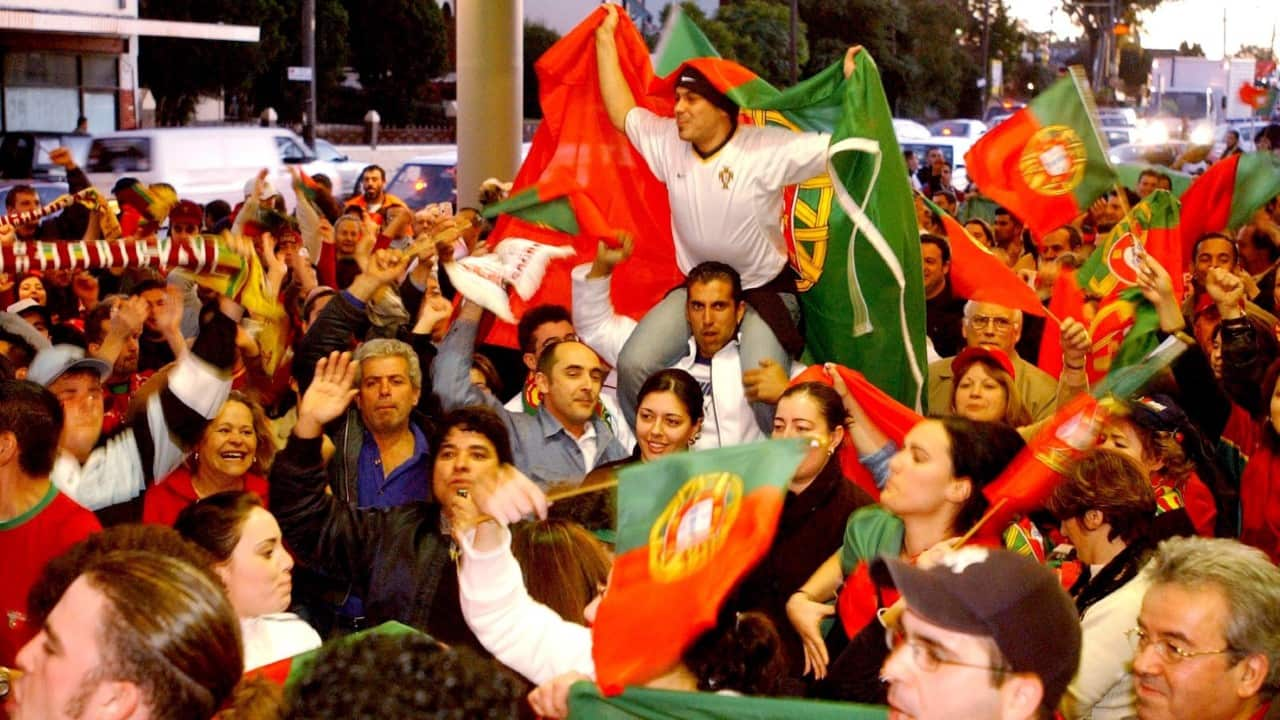 Other nations are hoping to replicate the feat, like the current World Cup runner-ups, Croatia.
Other nations are hoping to replicate the feat, like the current World Cup runner-ups, Croatia.

July 1, 2004. Supporters from Sydney's Portugese community celebrating outside Canterbury-Hurlstone Park RSL after Portugal defeated Holland 2-1 at Euro 2004 Source: AAP Image/Mick Tsikas
"Croatians in Australia gather in their social clubs to watch almost all games of the national team, regardless of the time, whether it's the early hours of the morning or late at night," says SBS Croatian's Marjana Buljan.
"During the last World Cup final, the Croatian social clubs in Melbourne, Sydney, Gold Coast, Adelaide and Fremantle were packed with supporters. For many, it's a family outing, kids accompanying their parents.
"As for the forthcoming Euro Cup, many clubs announced that they will screen the game between Croatia and England that kicks off at 11 pm on June 13".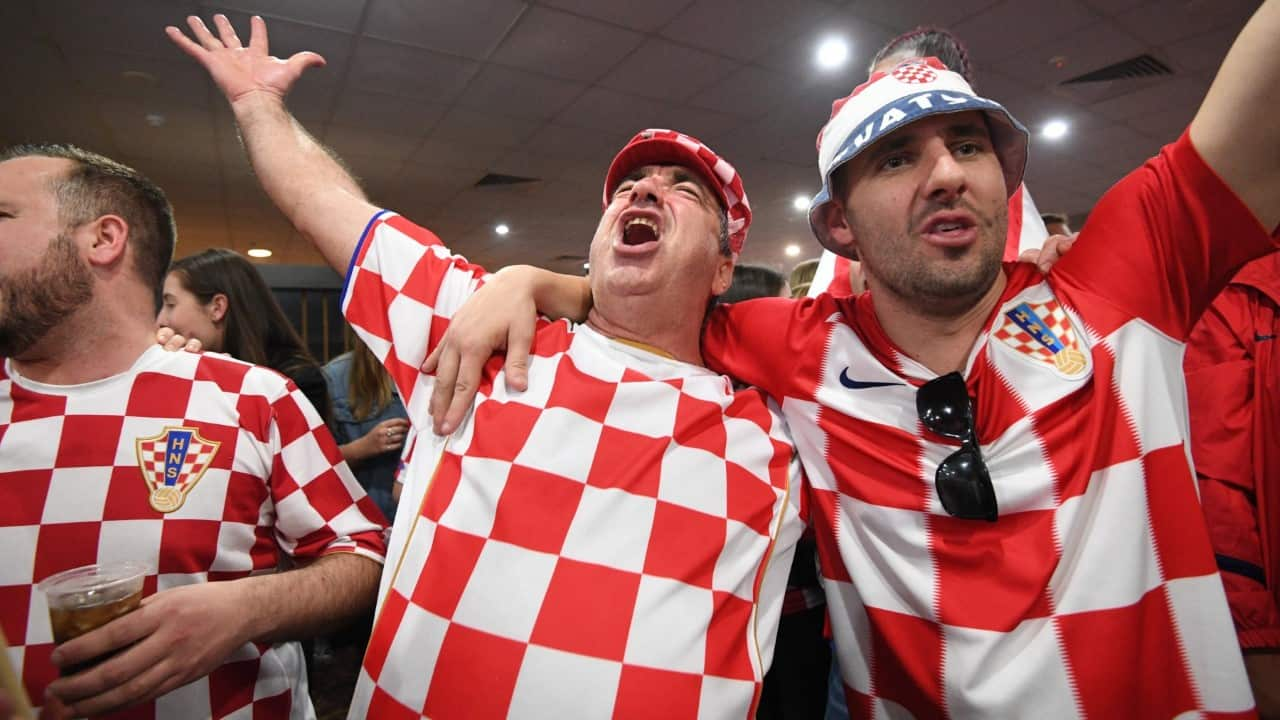 But possibly the biggest story for Australian multicultural football supporters is the fact that Euro 2020 will mark the debut of the Macedonian football team on the international stage.
But possibly the biggest story for Australian multicultural football supporters is the fact that Euro 2020 will mark the debut of the Macedonian football team on the international stage.

Croatia fans react during the FIFA World Cup final game between Croatia and France at King Tom Club in Sydney, Monday, July 16, 2018. Source: AAP Image/Brendan Esposito
Currently number 62 in FIFA's world rankings, they will be one of the two newcomers, joining Finland, and by far the biggest outsider.
As the Macedonian players will face Austria and Ukraine in Bucharest before taking on the top-seeded Netherlands in Amsterdam, all the team's matches will be closely followed by the Macedonian community down under. "With a great amount of interest shown by the community, all the matches will be shown on screen's at City Suns clubhouse in Sydney's Rockdale," says SBS Macedonian's Executive Producer Radica Bojkovska.
"With a great amount of interest shown by the community, all the matches will be shown on screen's at City Suns clubhouse in Sydney's Rockdale," says SBS Macedonian's Executive Producer Radica Bojkovska.

How the Macedonian fans in Sydney are announcing the screening of their team's football matches Source: Facebook
The venue, home to the Gringila Lions Foodball Club, offers a Euro Special Macedonian Winter meal, with veal stew, bread roll and makalo.
"It's a traditional yogurt with garlic dip" explains Ms Bojkovska.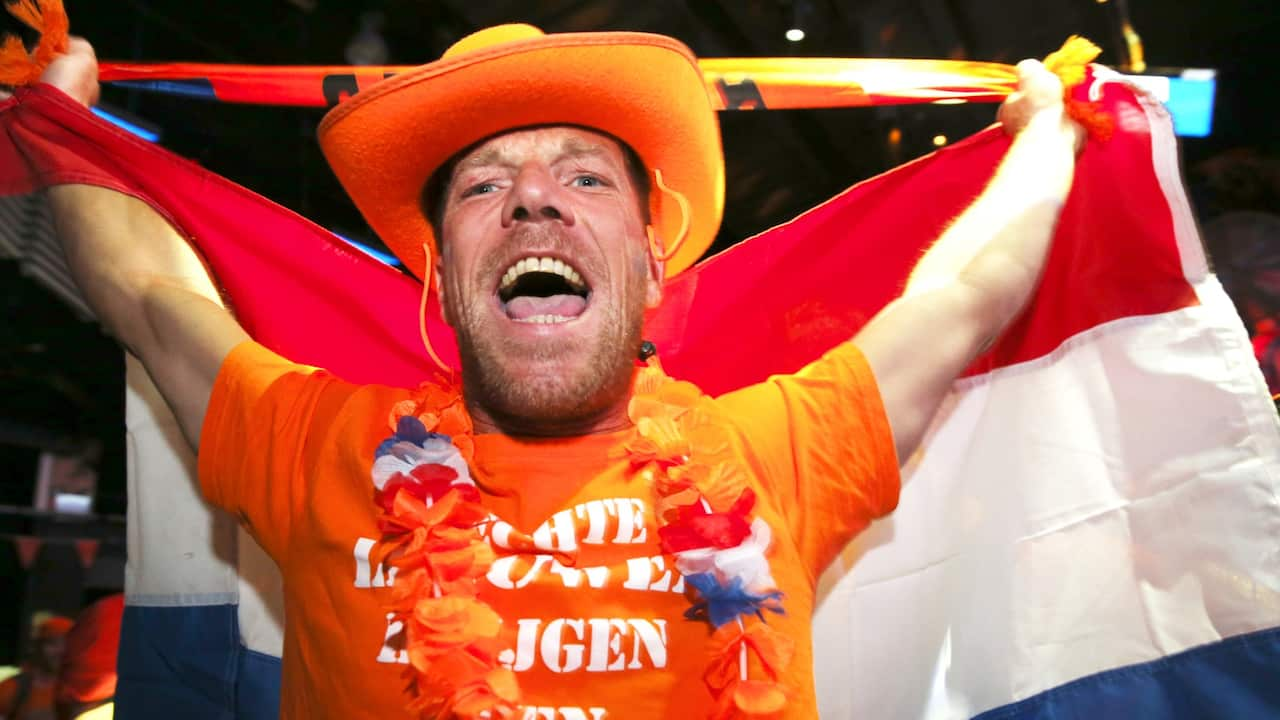 Euro 2020 will run from June 11 to July 12 this year, with host cities of Glasgow, Dublin, Bilbao, Amsterdam, Copenhagen, Munich, Rome, St Petersburg, Bucharest, Budapest and Baku, with the climax set for London's Wembley Stadium.
Euro 2020 will run from June 11 to July 12 this year, with host cities of Glasgow, Dublin, Bilbao, Amsterdam, Copenhagen, Munich, Rome, St Petersburg, Bucharest, Budapest and Baku, with the climax set for London's Wembley Stadium.

Dutch soccer fan Jeroem De Laat at Sydney's Home Bar to watch the 2014 World Cup match between Australia and the Netherlands Source: AAP Image/Jane Dempster
Share
